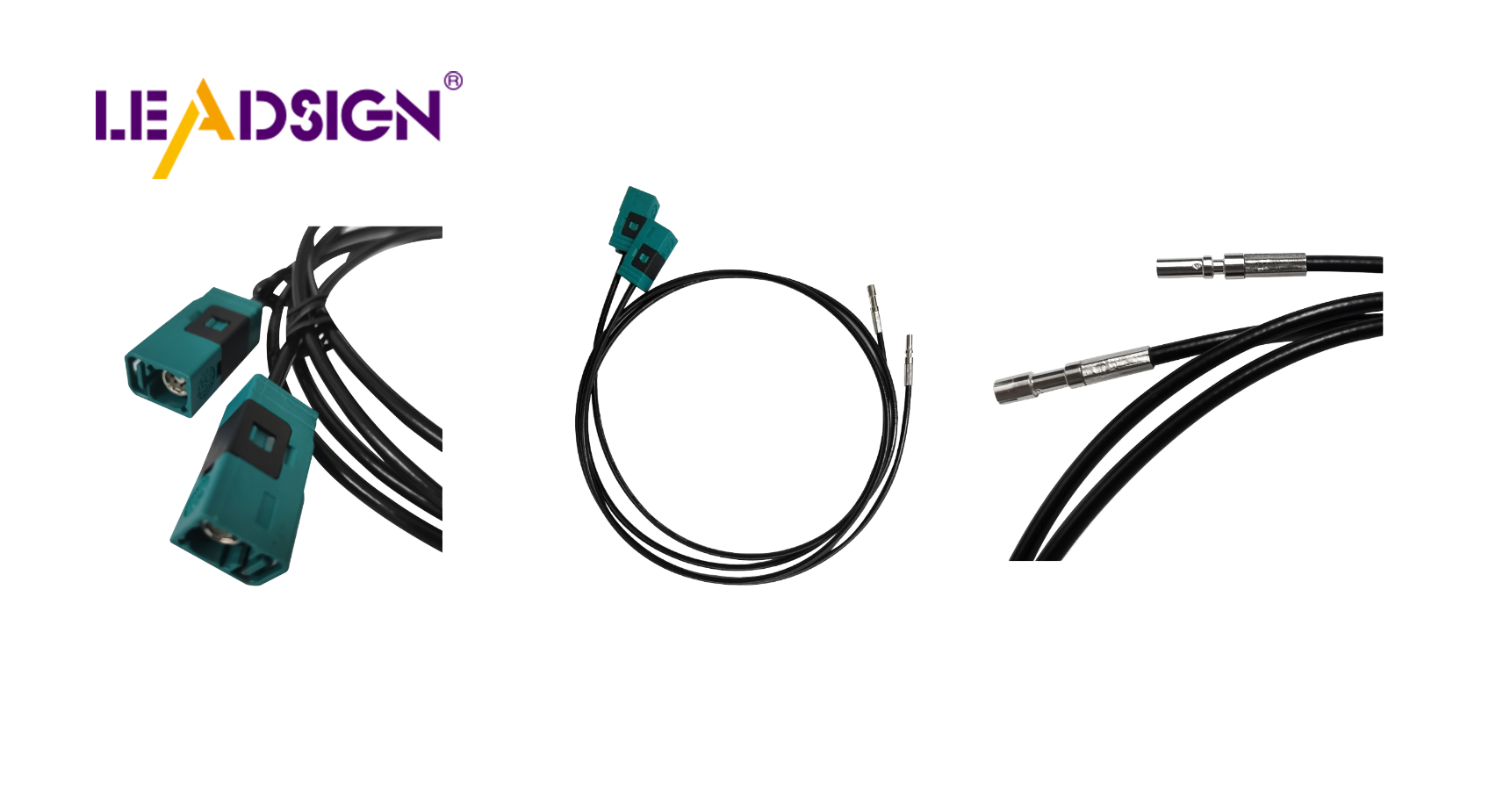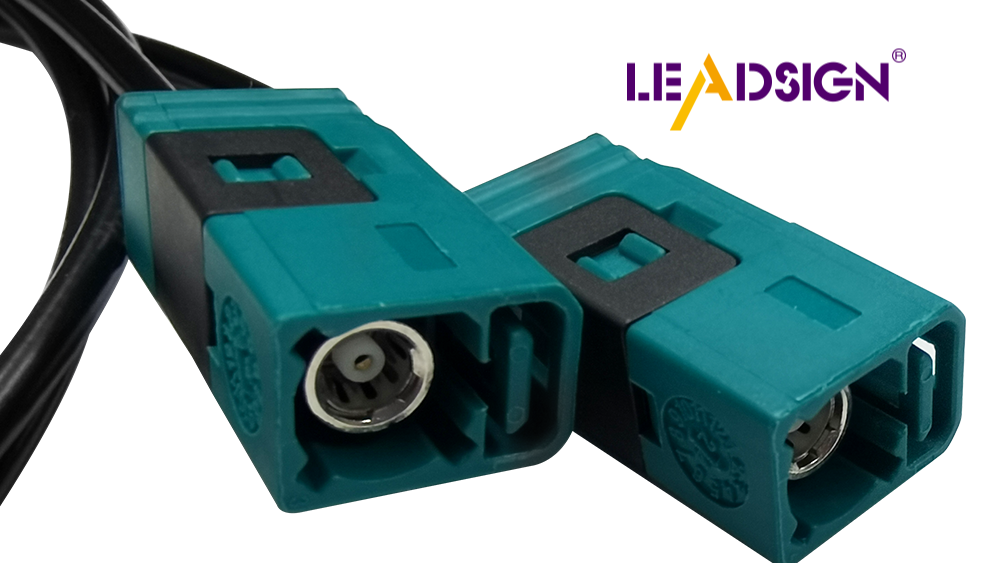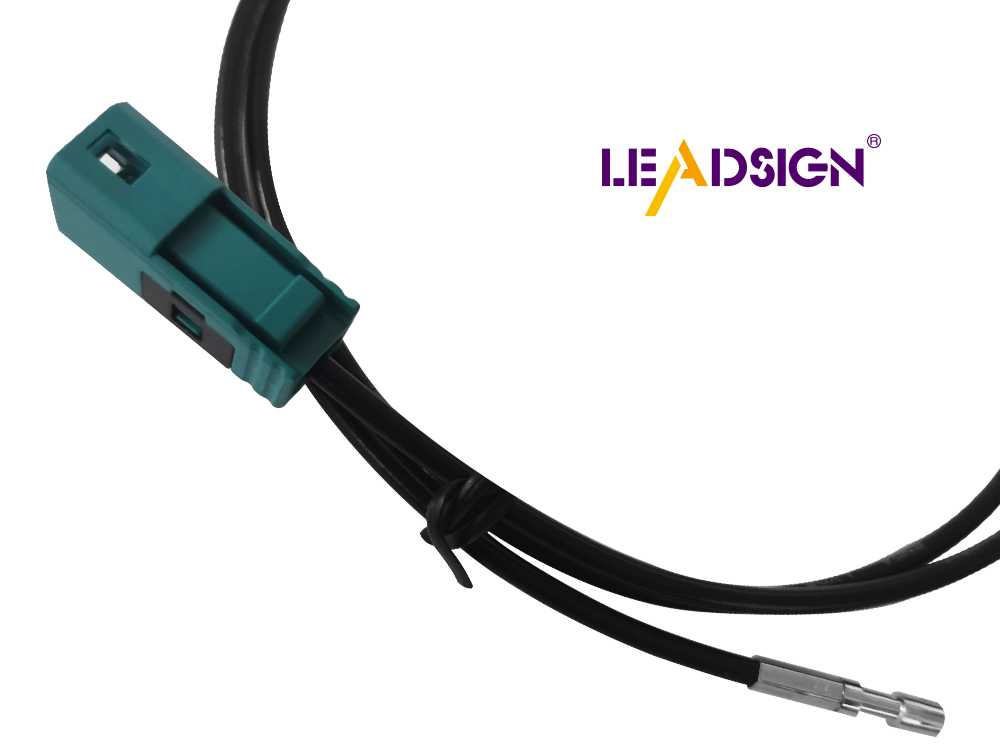Understanding Automotive Wiring Connector Types

Automotive electrical connectors are crucial in modern vehicles, ensuring the safe connection of various electrical components. These connectors maintain the efficiency of the car's electrical system and prevent issues caused by poor connections. Among the automotive electrical connectors types are blade, pin, and specialty connectors, each designed for specific applications. They are built to withstand exposure to water and chemicals, ensuring durability. Selecting the appropriate automotive electrical connectors types is vital for optimal vehicle performance and safety. Understanding these types aids in choosing the best connector for reliable functionality.
Types of Automotive Wiring Connectors

Blade Connectors
Characteristics of Blade Connectors
Blade connectors, also called spade terminals, help connect car parts. They have a flat shape that fits into slots for a strong link. Made from brass or copper, they conduct electricity well and don't rust easily. Their design makes them easy to put in and take out, so many people use them in cars.
Applications of Blade Connectors
Blade connectors are used a lot in car systems. They connect wires to lights like headlights and tail lights. Because they're easy to use and reliable, they're great when you need to unplug and plug back often. They're also found in fuse boxes and relay panels for important connections.
Pin Connectors
Characteristics of Pin Connectors
Pin connectors, or male connectors, have pins that fit into sockets. They're good for tight spaces with many connections in cars. Micro Blade & Beam connectors offer small options like 0.40 mm and 0.50 mm sizes for fast links. They're built tough to last long under different conditions.
Applications of Pin Connectors
Pin connectors are key where many links fit in small areas like ECUs or sensors. They handle fast data well, perfect for new cars with cool tech systems. They also join wiring harnesses for smooth part communication.
Butt Connectors
Characteristics of Butt Connectors
Butt connectors are round pieces joining two wire ends together. Made from copper or aluminum, they conduct electricity well too. They have a crimping tool that holds wires tight for a solid link.
Applications of Butt Connectors
Butt connectors fix or change car wires easily without soldering needed. They're great for adding new parts smoothly by extending wires quickly and safely.
Specialty Connectors
Characteristics of Specialty Connectors
Specialty connectors are made for special jobs in cars. They have unique designs for different uses, helping them work well. These include ring and push-on types, which hold tight in various automotive electrical connectors. For example, Micro Blade & Beam connectors are tiny, with sizes like 0.40 mm and 0.50 mm. They connect fast and fit many wires, perfect for new cars with cool tech.
Specialty connectors use materials that don't rust and last long even in tough places. This makes sure they work well over time in hard car environments. They often have strong locks to stop them from coming apart by accident, keeping things safe.
Applications of Specialty Connectors
Specialty connectors are used where special links are needed. In cars, they join parts like sensors and control units. These connectors help keep the car's electric system working right. Ring connectors attach to battery ends to give steady power.
Push-on connectors make quick links without needing tools. They're used a lot where you need to unplug and plug back often in automotive electrical connectors types. This is handy for lights and music systems that need fixing or upgrades often.
Characteristics of Automotive Wiring Connectors

Material Composition
Common Materials Used
Automotive electrical connectors use different materials for strength and performance. Makers often choose metals like copper and brass. These metals are great because they conduct electricity well and don't rust. This keeps the car's electric link steady, which is important for safety. Some connectors also have plastic or rubber to protect from weather.
Miniaturized Rugged Connectors use new material science to make strong connectors that last in tough places. Even small ones stay strong without losing performance.
Impact on Performance
The materials used affect how well automotive electrical connectors work. Copper helps electricity flow better between parts, saving energy and boosting car performance. Using rust-proof materials makes connectors last longer, needing less fixing over time.
Design and Construction
Design Variations
Automotive electrical connectors come in many designs for different jobs. Some are simple for easy connections; others are complex for many links at once. For example, Elastomeric Connectors bend easily, so you can connect and disconnect them a lot. They're perfect when you need lots of connections.
Elastomeric Connectors are cheaper than pogo pins when used often with many links needed.
Importance of Construction Quality
Good construction is key for automotive electrical connectors' success. Strongly built ones handle heat and shaking without breaking down. This stops failures and keeps the car's electric system working right. Well-made connectors also lower the chance of coming apart by accident, making them safer.
Choosing the right car electrical connectors is very important. It helps the car work well and last long. The correct connectors make sure electricity flows easily, keeps things safe, and handles tough weather.
How it Affects Car Performance
Electrical Flow
Car connectors affect how well electricity moves in a car. Good connectors let electricity flow smoothly, using less energy. Copper connectors are great because they carry electricity well and help the car run better. They cut down on resistance, so everything works nicely.
Safety and Trust
Safety is key in cars. Right connectors keep parts connected safely, stopping them from coming loose. Special ones like ring or push-on types lock tightly even when stressed. This makes cars safer by lowering the chance of electric problems.
Lasting a Long Time
Handling Tough Conditions
Car connectors need to handle bad weather like rain or heat. Some new materials used in small strong connectors resist these things well. They stay strong for a long time in hard places.
Less Fixing Needed
Picking strong car connectors means fixing them less often. Ones that don’t rust or wear out save money and time since they need changing less often. Elastomeric ones are tough against bumps and shakes, making them good for long use without much upkeep.
In short, picking the right car electrical connectors is key for keeping cars working well and safe over time. Knowing how connector choice affects performance helps choose wisely for reliable cars.
Knowing different automotive wiring connectors is important for car safety and how well it works. Each connector, like blade or special ones, has its own job to keep electric links strong. Picking the right connectors helps cars last longer and work better. For example, Elastomeric connectors are tough and can be used again, great for places with lots of bumps. But spring pins might wear out after a while. Choosing good connectors makes cars run smoother and need less fixing, making driving safer and easier.
See Also
Exploring HSD Connectors in Automotive Technology
Significance of FAKRA Connectors in Contemporary Cars
Navigating Ford's FAKRA Connector System

